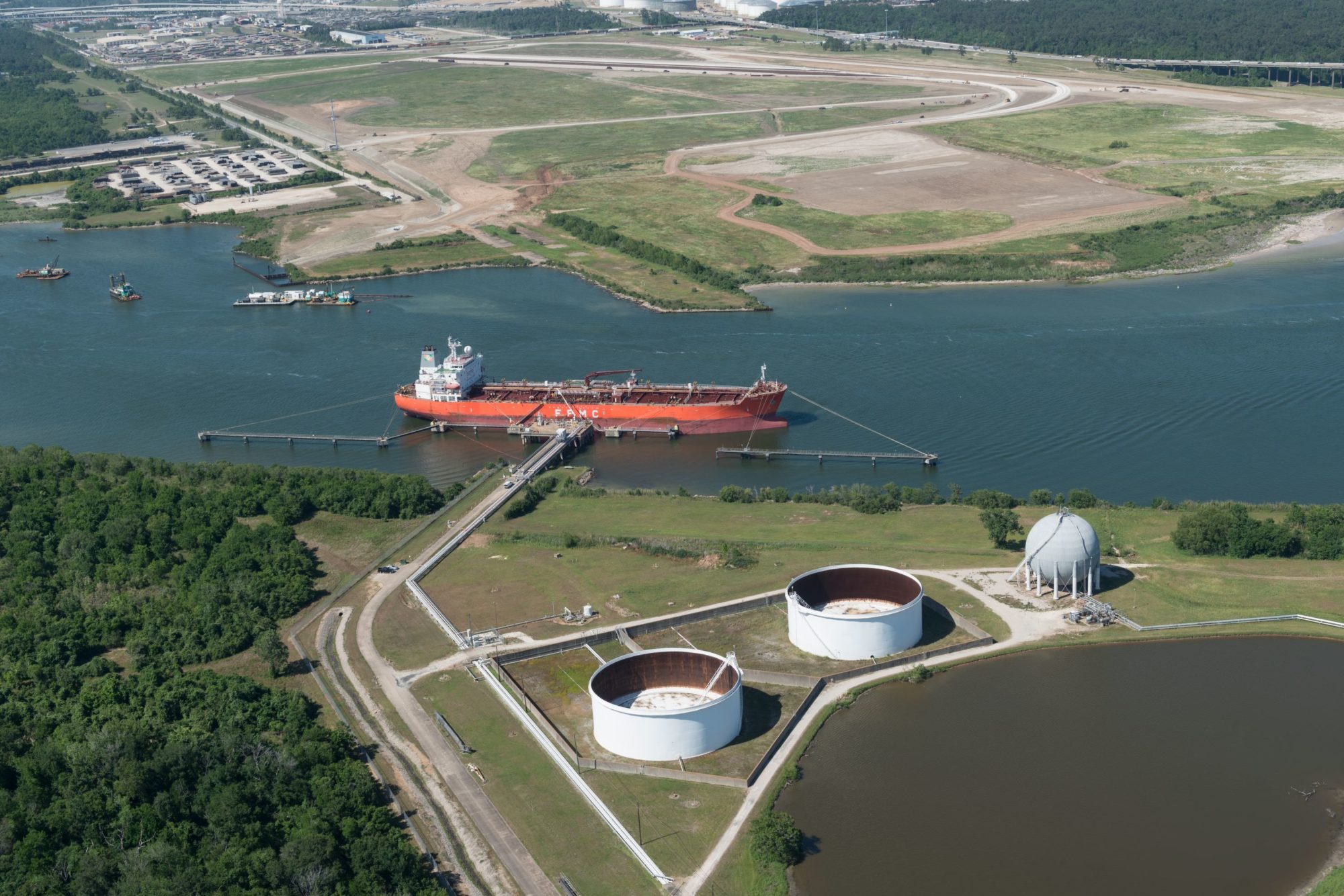A Victory for Port Communities in Houston
Public Citizen News / March-April 2022
By Adrian Shelley

This article appeared in the March/April 2022 edition of Public Citizen News. Download the full edition here.
Port Houston is sometimes called the “economic engine” of the Houston region. It’s one of the busiest ports in the nation and home to the second largest petrochemical complex in the world. Public Citizen founded the Healthy Port Communities Coalition (HPCC) a decade ago to advocate for the health and safety of communities around the Houston Ship Channel and Port Houston.
Now the HPCC has scored a major victory for Houston communities. In October, Port Houston Authority agreed to use clean dredging equipment for the first phase of its latest expansion project.
More than a century ago, the Houston Ship Channel was built to establish Houston as a major port for the United States. Periodic dredging is required to keep the Ship Channel wide and deep enough to accommodate the massive ships that call on the port. Project 11 is the eleventh such project in the port’s history. The Healthy Port Communities Coalition is working to ensure that Project 11 proceeds with minimal impact to local communities.
Project 11 will take six years and cost more than a billion dollars. The project is expected to emit more than 3,600 tons of nitrogen oxide (NOx) pollution. NOx is an air pollutant that contributes to Houston’s status as a violator of national ozone pollution standards. The Texas Commission on Environmental Quality (TCEQ) recommended that the Port of Houston take steps to limit NOx pollution, but the Port Authority initially declined to spend any money to reduce pollution.
Communities around the Houston Ship Channel already suffer under the burden of air pollution from port traffic and the high concentration of petrochemical facilities in the region. Public Citizen and its partners in the Healthy Port Communities Coalition asked Port Houston to reduce this burden by using cleaner equipment for Project 11.
At first, the Port Authority ignored our recommendation, just as it had ignored earlier recommendations by TCEQ. The HPCC then enlisted the help of the Houston Advanced Research Center (HARC), which provides independent analysis on energy, air, and water issues to people seeking scientific answers. HARC produced a report showing that Project 11 would emit pollution that would shorten lives and harm communities around the Houston Ship Channel, resulting in health costs to the community of more than $115 million.
The Houston Chronicle carried front page coverage of the HARC report, lamenting how this project was creating yet another health challenge for overburdened communities. Not long after, the Houston Chronicle’s editorial board called on the Port Authority to do more to protect its neighbors.
Port officials were not happy with the negative publicity they received. But the public attention yielded results, as the Port Authority quickly announced it was delaying the start of Project 11 to procure clean equipment.
Typical dredging vessels operate by burning diesel fuel. Burning diesel leads to emissions of air pollution including nitrogen oxides and particulate matter. This pollution is deadly, and it hurts low-income communities of color the most. The Port Authority’s initial plan for the first phase of Project 11 used the dirtiest dredge ships available—ships that were chosen simply because they were the cheapest option.
The Port’s new plan will spend $4.5 million for selective catalytic reduction technology to reduce nitrogen oxide pollution from the two dredge ships used in the first phase of Project 11.
This is a major victory for the communities along the Houston Ship Channel. But the Port Authority has only made this commitment for the first phase of Project 11. More recently, the Port Authority announced that later phases of the project will be led by the U.S. Army Corps of Engineers. The Army Corps. has not made the same commitment as the Port of Houston Authority to use clean equipment.
We hope this isn’t true. We believed Port Houston Authority officials when they told us they were committed to protecting communities by using cleaner equipment. The Army Corps hasn’t yet made this same commitment. The Port Authority can’t hide behind the Army Corps. Communities still have to breathe air pollution, no matter who OKs the contract.
Public Citizen founded the Healthy Port Communities Coalition to advocate for the health and safety of communities around the Houston Ship Channel. We won’t stop until everyone in Houston has the opportunity to lead a healthy, productive life free of air pollution.
As valuable as the Houston Ship Channel is to Houston’s economy, the health and safety of people living near the Ship Channel is priceless.